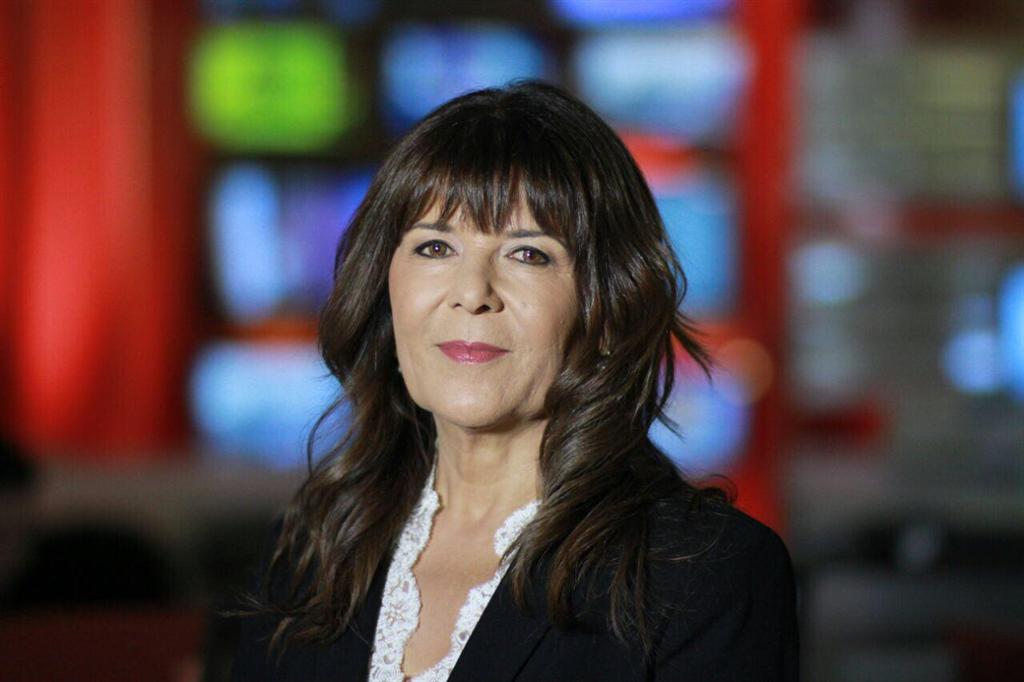Getting your Trinity Audio player ready...
Veteran TV political pundit Rina Matzliach managed to make herself into public enemy No. 1 on Friday, when she said the way the state's kid glove handling of the ultra-Orthodox had to end.
"The relationship between the ultra-Orthodox and the state must change," Matzliah said during a segment on the high numbers of coronavirus cases in the Haredi community.
5 View gallery
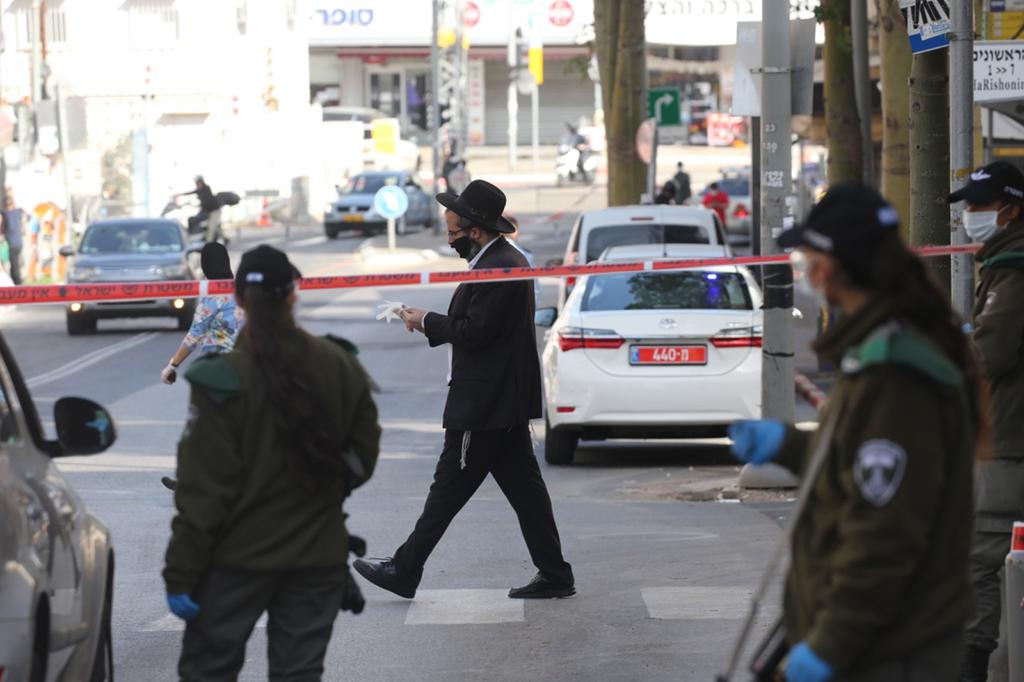

Police officers enforce a partial lockdown in the Haredi city of Bnei Brak
(Photo: Yariv Katz)
"They need to understand they are as obligated to [to the state] as much as any other citizen," Matzliah said.
"When an ultra-Orthodox Jew receives a military draft order, even though he knows he won't join the army, suddenly come the protests and barricades.
"They need to understand we want to help them. The ultra-Orthodox do not feel obligated to abide by any state order or decree."
Matzliah received enormous backlash for those statements, with many accusing her of racism and stereotyping.
But this debate was not caused by the coronavirus epidemic. The Israeli public has a long-standing score to settle with the ultra-Orthodox and it seems to matter not that there are many movements within the community.
Alas we live in a world of generalizations. Most of the ultra-Orthodox have, even if a little late, adhered to all orders.
5 View gallery
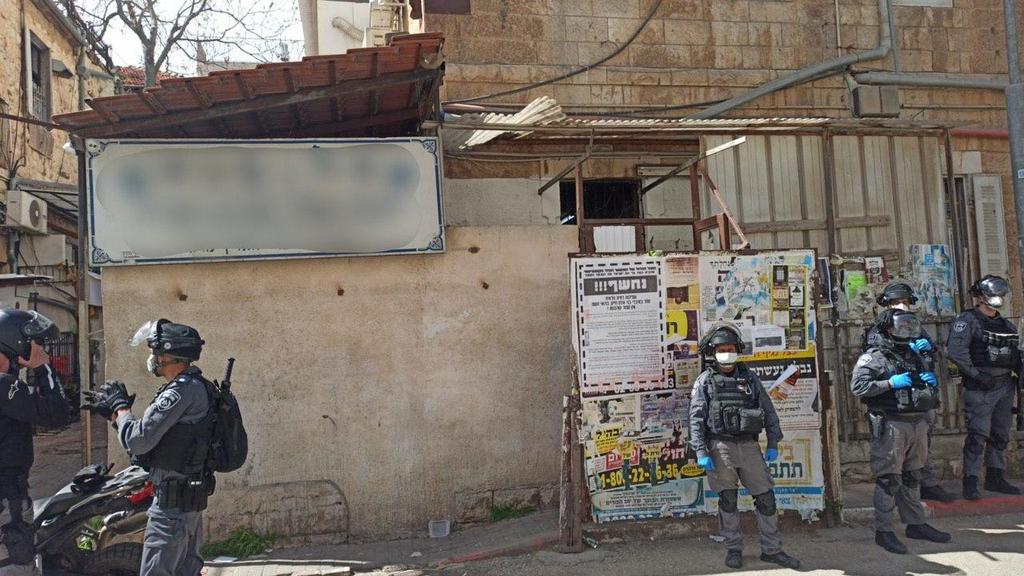

Police raid a Jerusalem synagogue that was open despite coronavirus directives
(Photo: Israel Police)
Who are the ones making the headlines? The anti-Zionist movements, those confronting police and insisting, even in these troubled times, on disregarding government orders. These actions not only hurt the entire Israeli population in general but also the ultra-Orthodox majority in particular who does want to obey the rules and stay safe.
Does this grant the ultra-Orthodox immunity from criticism? Of course not.
Matzliach said that they must "learn" that the state wants to help them out of this crisis and that their relationship with the state must change.
Where's the racism in this?
The coronavirus is just a small detail in an already strained relationship. For years, the rest of Israel has been living under ultra-Orthodox coercion. Not only regarding the education system, but also on conversion, Kosher food, the welfare system and their reluctance to contribute to the needs of the state.
5 View gallery
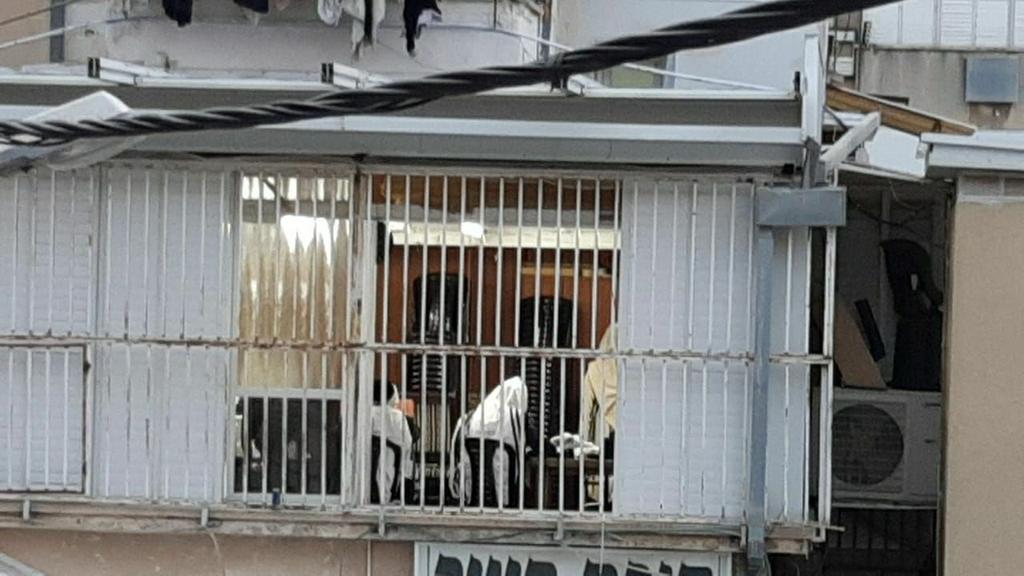

Rabbi Chaim Kanievsky holds secret mass prayers at his Jerusalem home, breaching state directives
When a plague descends upon the land, Rabbi Chaim Kanievsky ordered his entire flock, not just "an extreme minority," to ignore the new orders and to keep holding mass prayers and the yeshivas open.
The result of this is more infected and more dead. Even if the rabbi did ultimately change his mind, the damage had already been done.
Criticism is not racism. Calling it racism is mainly a way to shut down opinions. It should be noted that even after Kanievsky ordered his flock to follow government orders, he still held mass prayers in his personal residence, in complete violation of restrictions.
And if that were not insult enough, a new government is nearing establishment with no rethink of the role played by the ultra-Orthodox parties.
Their terms and conditions remain the same - give them whatever they want. The damage to the economy is barely going to hurt them anyway and their welfare checks will keep coming. Their grip on religious and state affairs will also continue as normal.
We have all become normalized to this control, which both makes the ultra-Orthodox reliant on this extortion and damages the state.
5 View gallery
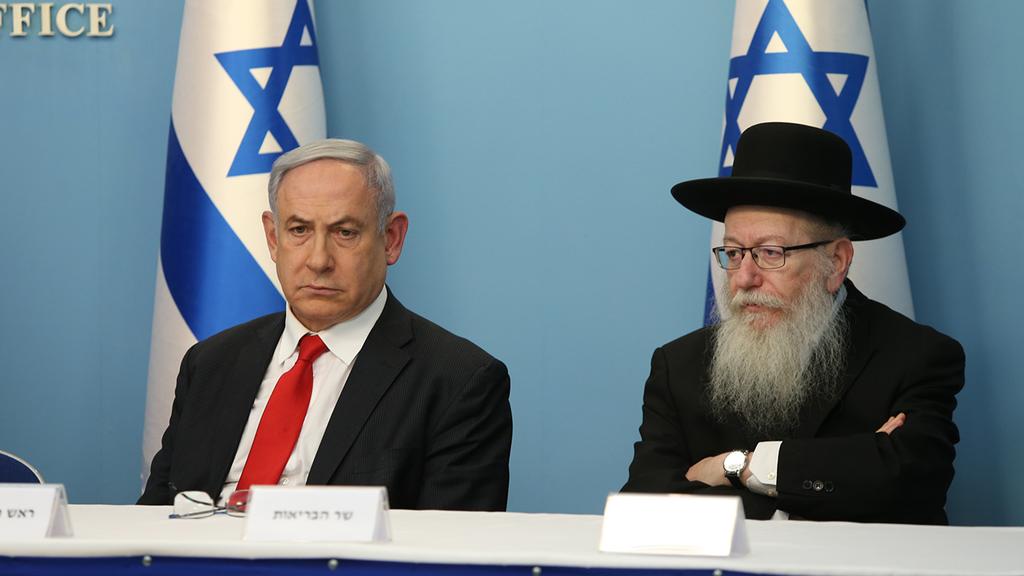

Prime Minister Benjamin Netanyahu and Health Minister Yaakov Litzman
(Photo: Amit Shabi )
The public hatred of this relationship only continues to grow while those at fault are the ones who want to keep this twisted relationship going.
Every time there is any criticism of the ultra-Orthodox community, the immediate response is a cry of anti-Semitism.
Did the Jews from Poland or Morocco hold the country hostage?" these defenders of the status quo ask. "Did they coerce the state into giving their communities mass budgets? Hatred of Jews is racism and nothing more."
But criticism of the ultra-Orthodox is based on concrete facts that can no longer be ignored. Claiming those facts is anti-Semitism is pure demagogy.
There was hope that a unity government would lead to change, but that is not the case. Netanyahu has made his capitulation to the ultra-Orthodox a mainstay of his political agenda - and it's only getting worse.
Matzliach's words are justified. We must change this relationship, regardless of the epidemic and the emergency measures now in place. But that change will never come if criticism of this community is forever silenced.


